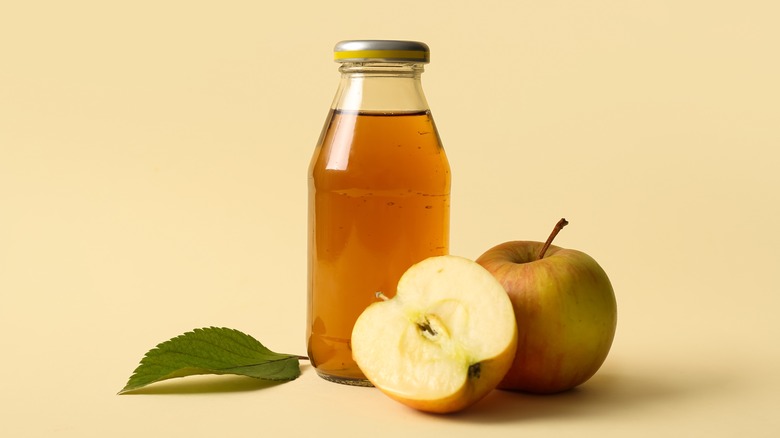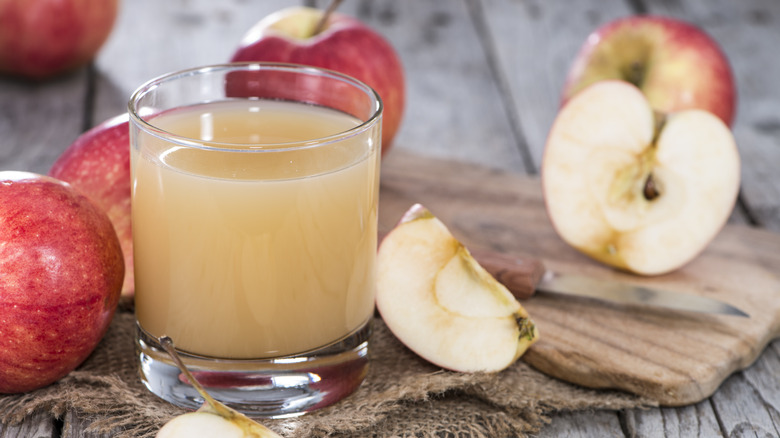Walmart Recalls Over 9,500 Cases Of Apple Juice Over Arsenic Risks
If you've recently purchased apple juice at Walmart, you may want to know about a new recall from the U.S. Food & Drug Administration. Originally issued on August 15, the recall was upgraded to an elevated status on Friday, August 23. Over 9,500 cases of the chain's Great Value 8-ounce apple juice bottles, which are sold in packs of six, have been recalled due to high inorganic arsenic levels.
The drinks were stocked in Walmart's retail outlets across 25 states, including Alabama, Connecticut, Delaware, Florida, Georgia, Illinois, Indiana, Kentucky, Maine, Maryland, Massachusetts, Michigan, Mississippi, New Hampshire, New Jersey, New York, North Carolina, Ohio, Pennsylvania, Rhode Island, South Carolina, Tennessee, Vermont, Virginia, and West Virginia, plus Puerto Rico and the District of Columbia.
If you suspect that your apple juice might be compromised, it's important to check details on the back of the label. The affected products have a best-by date of December 28, 2024, and their Universal Product Code (the number written under the barcode) is 0-78742-29655-5. In yours is part of the recall, throw the apple juice away without opening it, or return it to your nearest Walmart for a refund.
The latest development follows Walmart recalling eight tons of ground beef in May 2024 over concerns of E.coli. Months later, a popular candy brand sold at Walmart was recalled for salmonella contamination.
What is inorganic arsenic?
The recall for Walmart's apple juice was voluntarily initiated by the Florida-based manufacturer Refresco Beverages US Inc. on August 15, 2024. A week later, the FDA categorized it as a Class II recall, defined as "a situation in which use of or exposure to a violative product may cause temporary or medically reversible adverse health consequences or where the probability of serious adverse health consequences is remote."
Arsenic is a toxic metal that is naturally present everywhere in the environment — in animals, plants, water, soil, and even the air that we breathe. This metal can be organic or inorganic, and it's the latter that studies suggest is more dangerous. Consuming large amounts of it can lead to arsenic poisoning, and long term exposure to the toxin may cause skin lesions, cancer, diabetes, and cardiovascular as well as pulmonary disease (via World Health Organization). It can even impair the development of fetuses, infants, and young children.
Exposure to low levels of arsenic both in the environment and in our food is unavoidable. However, the FDA sets regulatory levels beyond which it's too high and unsafe for consumption. In June 2023, the federal agency set the cap for inorganic arsenic in apple juice at 10 parts per billion. In comparison, the amount present in Walmart's Great Value apple juice was found to be at 13.2 parts per billion, meaning it is classified as an adulterated beverage (though it does not warrant a Class I recall). The FDA hasn't released reports of any illnesses linked to the recall thus far.


